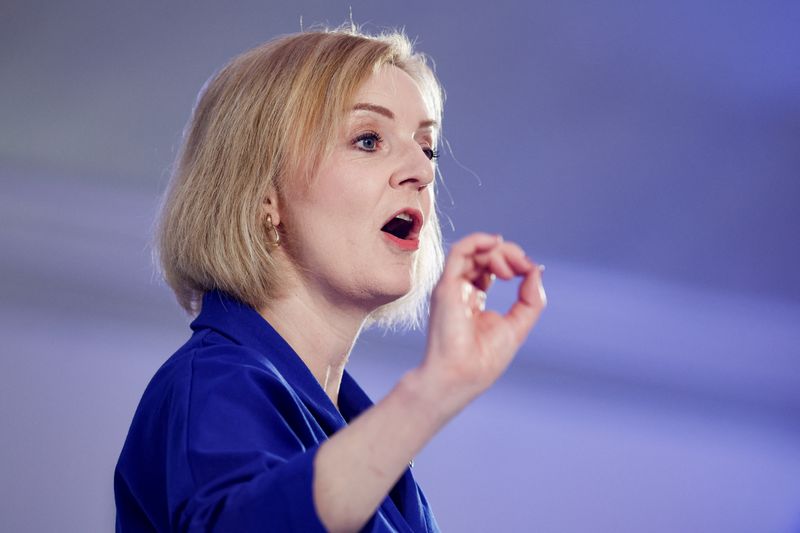By Scott Kanowsky
Investing.com -- New U.K. prime minister Liz Truss' proposed caps on energy prices will "inevitably" require some government spending in the near term, according to chancellor Kwasi Kwarteng.
In an article in the Financial Times, Kwarteng argued that fiscal loosening is necessary to help businesses and households in Britain face soaring fuel costs this winter. Without this "emergency response," Kwarteng warned, firms could go out of business, jobs would be lost, and inflation would continue to spike aggressively.
The comments come after Truss told the House of Commons on Thursday that she intends to set the maximum dual-fuel bill for a typical family home at £2,500 ($2,880) a year for two years, starting in October.
That is over £1,000 less than had appeared likely after the U.K. energy regulator Ofgem's latest review of its price formula. However, it still represents an increase of more than 100% from what households were paying last winter.
Households will still receive the £400 rebate as promised earlier this year by the previous government led by Boris Johnson.
Truss also laid out a proposed six-month relief scheme for businesses and charities which will aim to give equivalent support. She promised "focused support" to vulnerable industries after that scheme expires.
The government will aim to identify which sectors need this support within three months, Truss said.
Kwarteng reiterated Truss' claim that the plans will bring down inflation by around 5 percentage points, adding that this decrease will in turn reduce government expenditures on debt servicing by approximately £10B within the first six months of the policy.
The potential cooling of inflation may take some of the pressure off the Bank of England to raise interest rates further over the coming months. However, analysts have raised concerns that, by supporting household demand, the plan may not address the longer term structural component of this year's surge in consumer prices.
